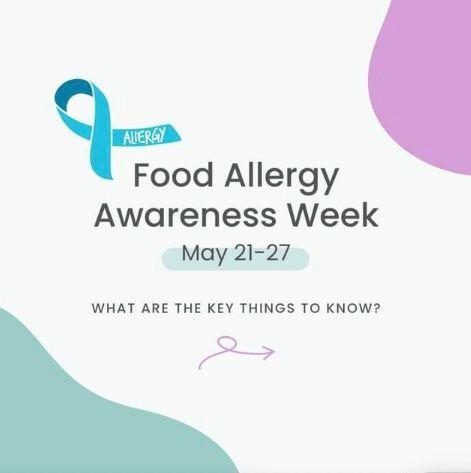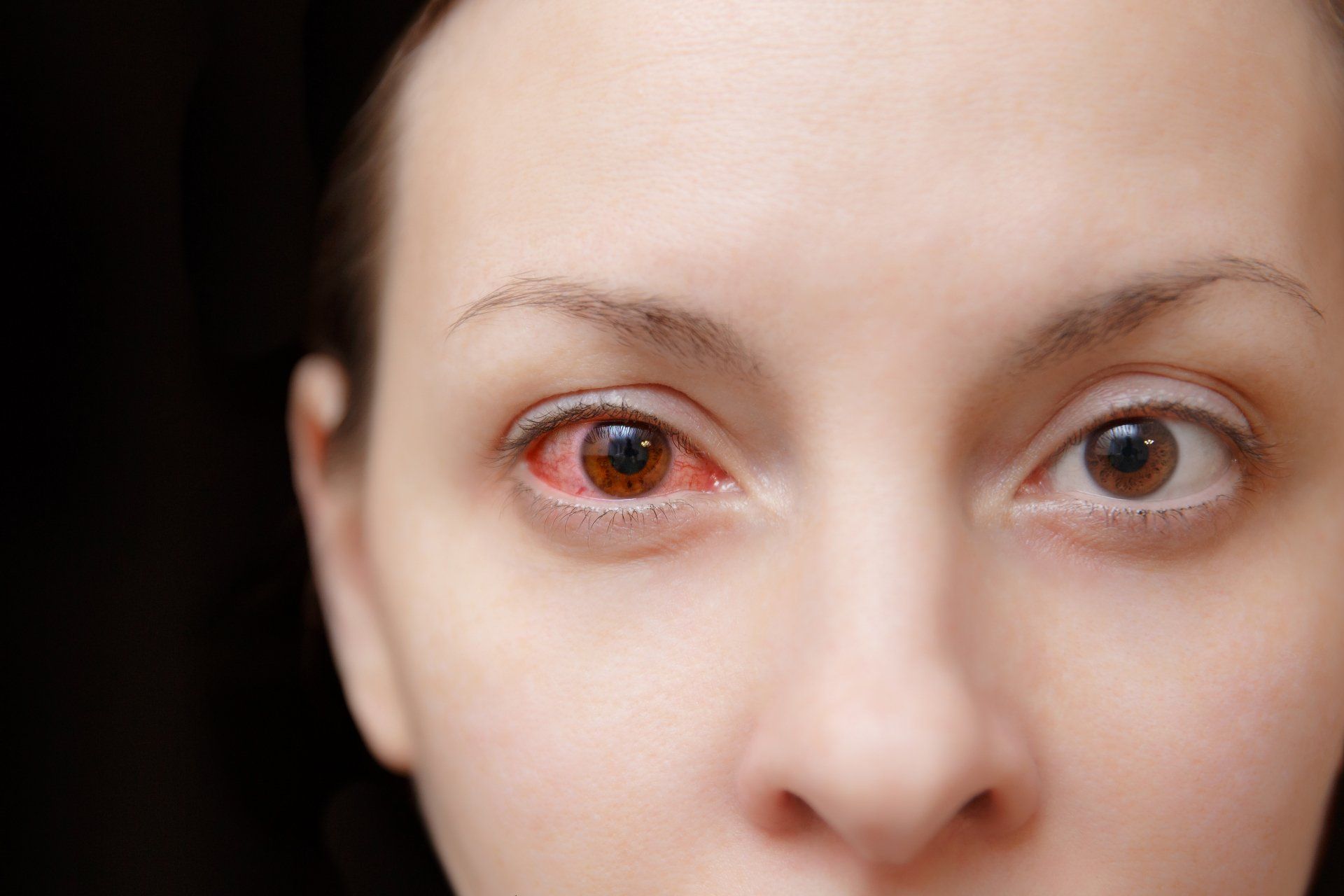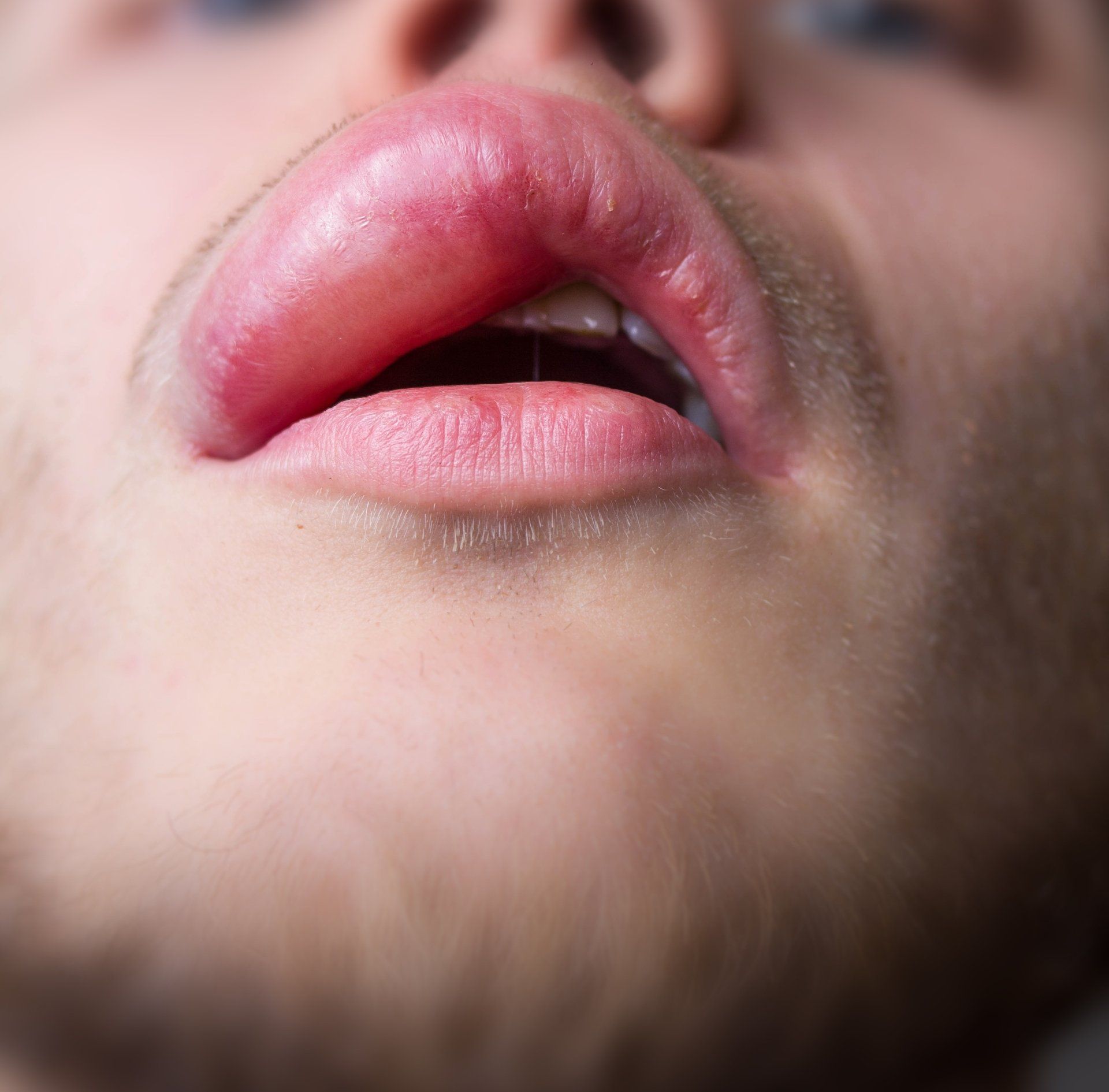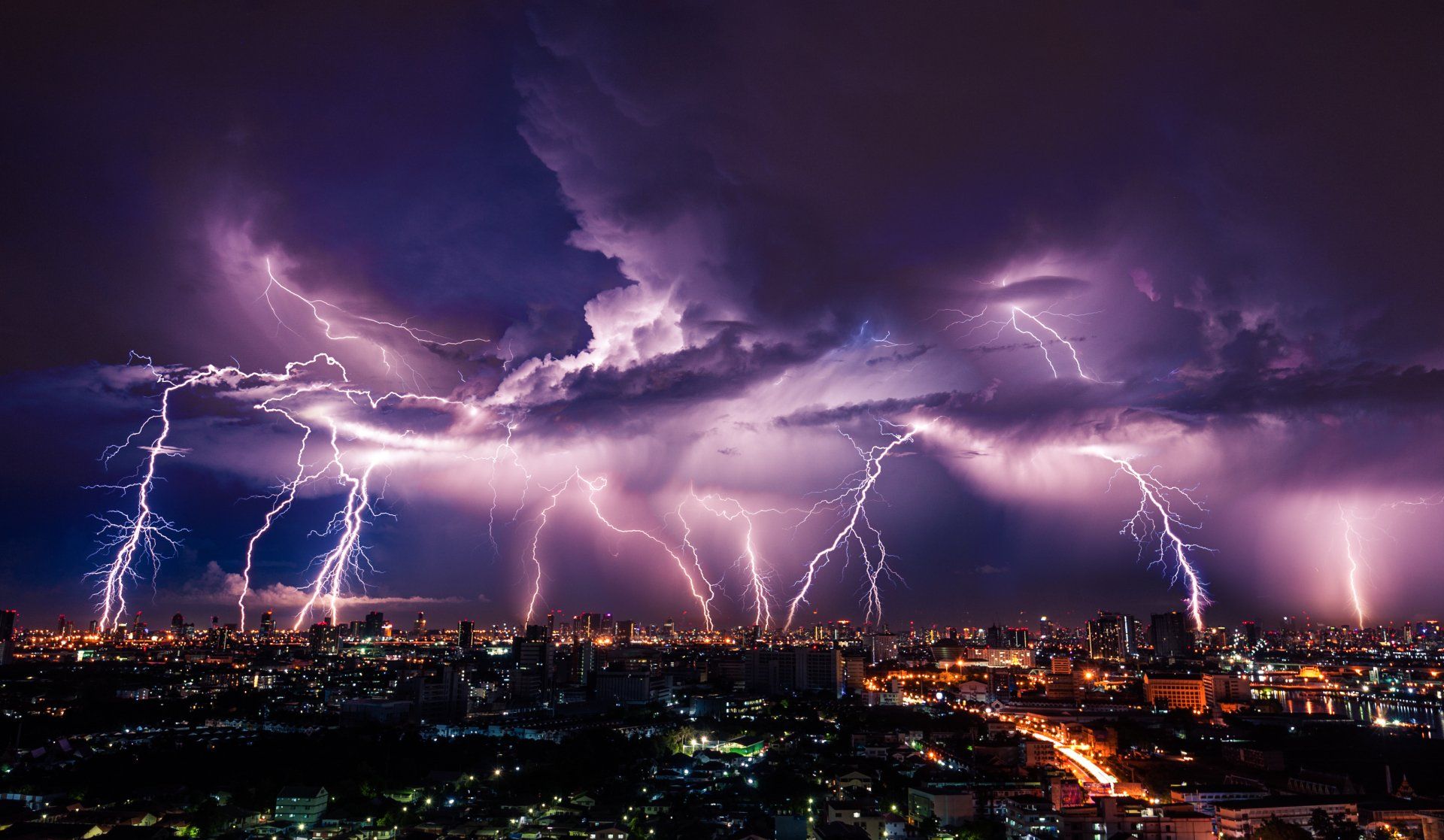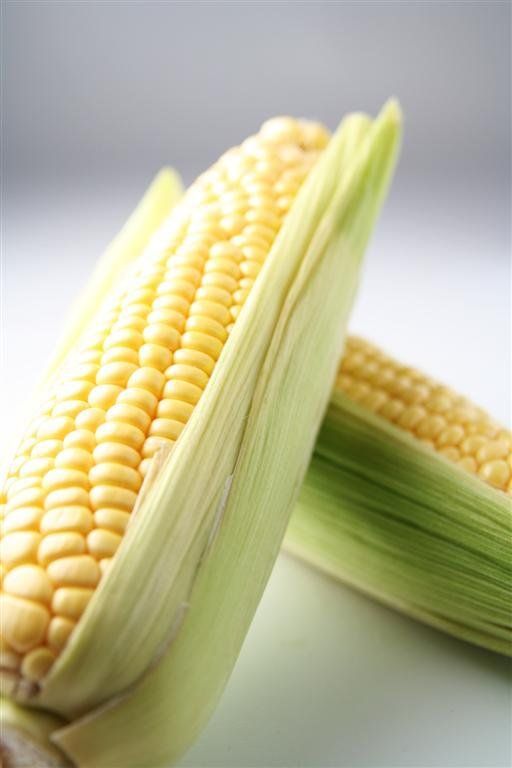Urticaria (Hives) - Allergy Clinic Brisbane | Allergy Clinic Gold Coast | Allergy Sunshine Coast
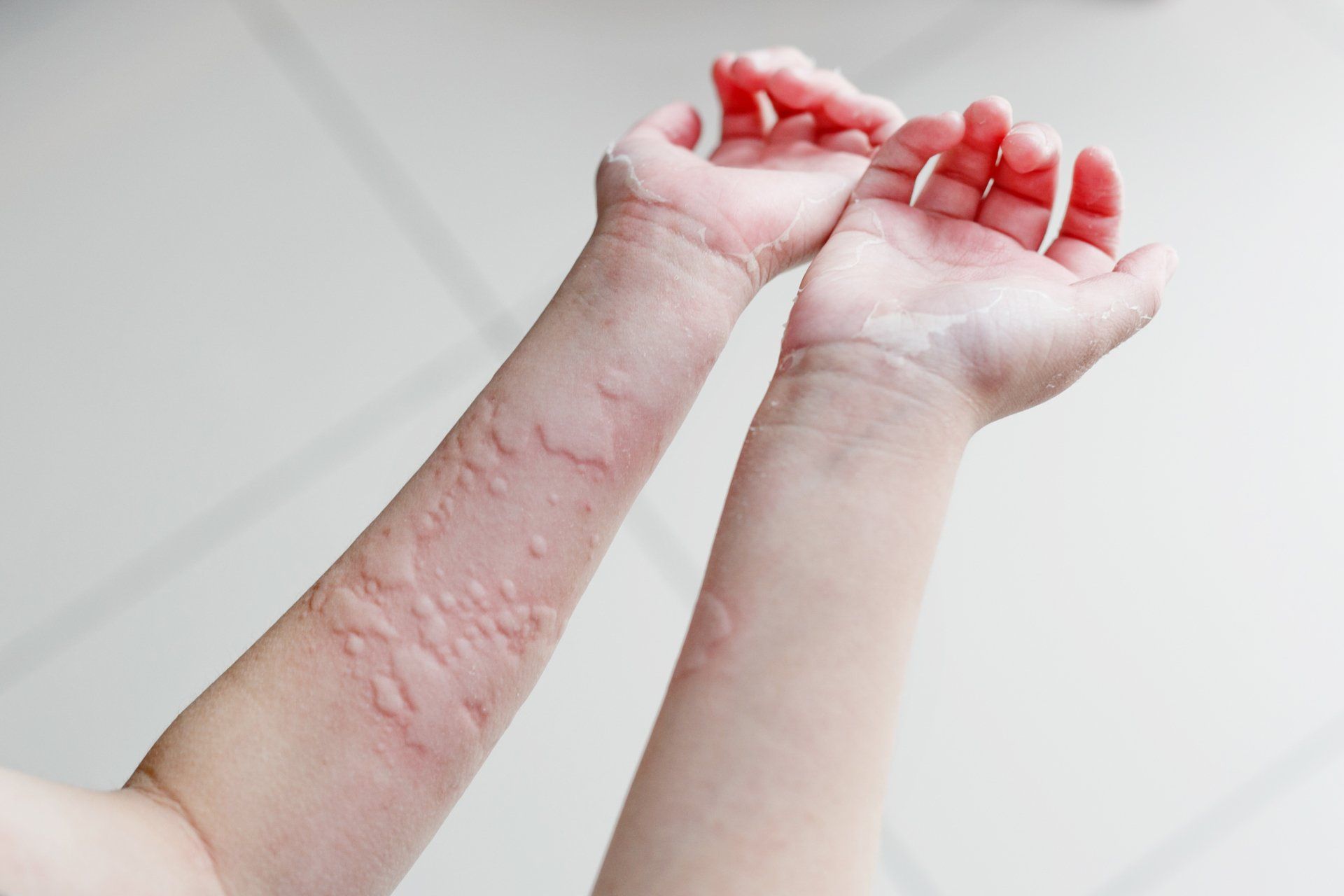
Urticaria is the medical term for hives, an allergic-like reaction of the skin, in which areas of the skin become red, itchy and raised. Urticaria is the most common cause of skin inflammation. It is estimated to affect around 1 in 30 children, and up to 1 in 5 people throughout a lifetime. Though distressing, urticaria is generally a benign and self-limiting condition.
In response to a trigger, the immune system activates and the cutaneous mast cells release inflammatory mediators such as histamine. Histamine causes the small blood vessels (capillaries) in the superficial layers of skin to leak fluid, and wheal-like swellings to develop on the surface of the skin. The wheals on the skin can be rounded or flat-topped, and vary in size from that of a pinprick to the size of a dinner plate. They are typically red with a pale centre, and blanch upon applying pressure.
There are two types of urticaria, acute and chronic. Urticaria usually develops quickly (within minutes) and resolves quickly (within hours or days). If episodes of urticaria recurrent, but last less than 6 weeks, than the urticaria is acute. The majority of urticaria presentations are acute. In the circumstance urticaria does not resolve within 6 weeks, it is classified as chronic. Acute urticaria is more common in children; chronic urticaria is more common in adults.
Though an allergic-like reaction, urticaria can be caused by both allergic and non-allergic mechanisms. Allergic triggers can include medications (antibiotics, analgesics, anaesthetic muscle relaxants, non-steroidal anti-inflammatory drugs), insect stings and foods. Physical contact with an allergen (e.g. animal saliva or dander, plants, raw foods, latex) can also cause urticaria. Non-allergic triggers can include infections, changes in body temperature, exposure to cold and exercise. Often the cause of urticaria is not clear.
The treatment of hives predominantly involves avoidance of the triggers which cause and aggravate urticaria. At Allergy First we can help distinguish between allergic and non allergic triggers to urticaria.

